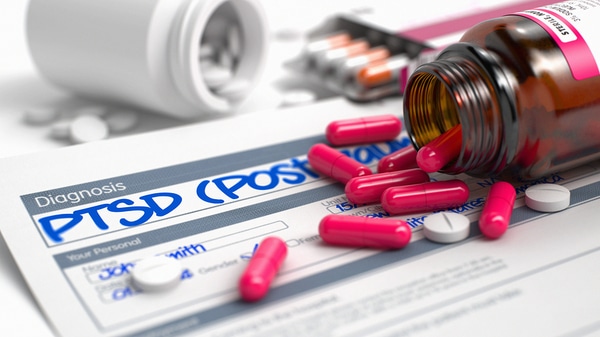
PTSD and substance abuse often go hand in hand.
Between 7 and 8 percent of Americans will experience PTSD over the course of their lifetimes, according to the National Center for PTSD. While coping with the condition is hard enough on its own, a growing body of research indicates that people who suffer from PTSD are more likely to become addicted to drugs and alcohol, which may interfere with the healing process. Here’s a closer look at the challenging relationship between PTSD and substance abuse, along with the pivotal role professional help can play in supporting recovery.
The Facts on PTSD and Substance Abuse
The link between PTSD and addiction isn’t exactly breaking news. More than a decade ago, “Substance Abuse and Posttraumatic Stress Disorder,” an article published in the academic journal Current Directions in Psychological Science, revealed that 51.9 percent of men and 27.9 percent of women with PTSD meet the criteria for drug or alcohol dependence during their lives.
And while there is no conclusive evidence indicating why people with PTSD are at a higher risk for addiction, scientists have suggested a number of theories, including the following:
1. The high-risk theory proposes that drug and alcohol problems actually predate the development of PTSD and therefore put people at increased risk for experiencing traumatic events and developing PTSD.
2. The self-medication theory proposes that people with PTSD rely on substances to dull or ease their PTSD symptoms.
3. The susceptibility theory suggests that substance use following a traumatic event may increase the risk of developing PTSD.
4. The shared vulnerability theory proposes that a genetic predisposition may make people more vulnerable to both substance abuse problems and the development of PTSD after a traumatic experience.
Today, most experts believe that each of these theories has validity. The takeaway? Just as the connection between PTSD and addiction is complex and multi-factored, so must be the strategies used to treat them.
New Evidence Emerges
In addition to decades-old knowledge about the association between substance abuse and PTSD, new data is emerging every day. Consider recent research from Johns Hopkins Medicine published in Translational Psychiatry indicating that while as many as 80% of PTSD sufferers use alcohol in the attempt to mitigate bad emotional memories, the opposite may be the case.
As study co-author and neurology professor Norman Haughey told Science Daily, “If the effects of alcohol on memories to fearful responses are similar in humans to what we observe in mice, then it seems that our work helps us better understand how traumatic memories form and how to target better therapies for people being treated for PTSD. In fact, binge drinking or other attempts to use alcohol to self-medicate could be sabotaging any therapy efforts.”
Haughey’s advice based on his findings, according to a NY Daily News article?
“If you are a PTSD survivor/sufferer, (this research) means that alcohol could interfere with your ability to lead a more comfortable, fear-free life. So if you are trying to undergo therapy to deal with your PTSD, abstaining from alcohol would be critical for this to be effective.”

With professional help, freedom from PTSD and substance abuse is in your future.
The good news? While researchers are still learning how and why PTSD and substance abuse co-occur with such frequency, the more data they amass about the connection, the more successfully they can target substance abuse treatment and PTSD therapies toward healing and recovery. Unfortunately, PTSD and substance abuse share another core commonality: Many people who suffer from these conditions never get the help they need.
While it’s true that the decision to seek professional intervention is often a hard one, the truth is that acknowledging the past and coping with the present with help from an intensive substance abuse treatment program can be the key to overcoming fears, enjoying better relationships, and embracing a brighter future.
We’re Here to Help
Contact us today to learn more about how Harris House can help you “recover with responsibility” while achieving your sobriety goals.








